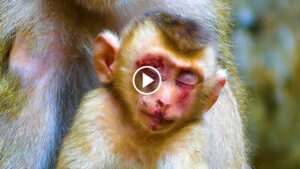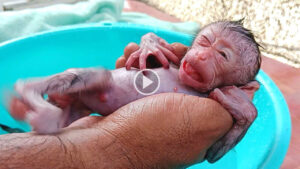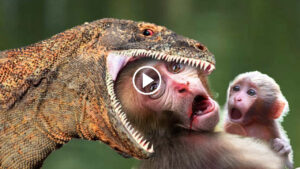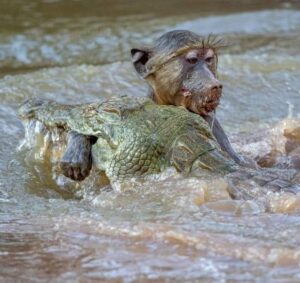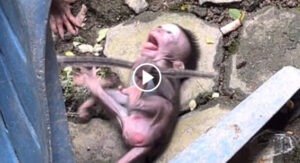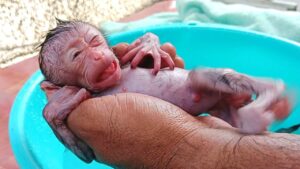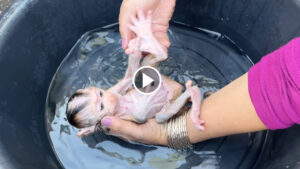Teach small baby monkey to be smart
Teaching a small baby monkey to develop intelligence, skills, and behaviors can be a rewarding experience, but it requires patience, care, and knowledge of the monkey’s natural instincts and abilities. Monkeys are highly intelligent animals, and they can learn a variety of tasks through positive reinforcement, social interaction, and environmental enrichment. Here are some ways to help a baby monkey develop and become smart:
### 1. **Create a Stimulating Environment**
Monkeys thrive in environments that challenge their minds and keep them engaged. To help a baby monkey grow intellectually, provide them with:
– **Toys and Tools**: Use puzzle toys, objects that they can manipulate (like balls, ropes, or simple mechanisms), and things they can explore. This helps them learn problem-solving skills.
– **Climbing Structures**: Monkeys are natural climbers, so offering climbing ropes, branches, and ladders can help them develop physical and mental agility.
– **Foraging Opportunities**: Hide small pieces of food or treats in different areas or inside puzzle feeders. This encourages the monkey to use problem-solving skills to find food, mimicking how they would forage in the wild.
### 2. **Social Interaction and Bonding**
Monkeys are social animals, and they learn a lot from observing and interacting with others. You can help a baby monkey become smarter by:
– **Spending Time Together**: Regular, gentle interaction helps the monkey feel secure and bonded to you, which in turn helps them learn better. Monkeys often mimic behaviors they see in those they trust.
– **Socialization with Other Monkeys**: If possible, allow the baby monkey to interact with other monkeys or animals. This teaches them how to communicate and learn behaviors from their peers.
### 3. **Use Positive Reinforcement Training**
Training is one of the best ways to teach a baby monkey new behaviors and stimulate their intelligence. Use positive reinforcement techniques, which are based on rewards for good behavior, such as:
– **Food Rewards**: Offer small, healthy treats when the monkey performs a desired behavior. Monkeys quickly associate positive outcomes with actions.
– **Clicker Training**: Clicker training uses a sound (a click) followed by a reward to reinforce specific behaviors. Over time, the monkey learns to associate the click with positive behavior.
– **Start Simple**: Begin with easy tasks, like teaching them to come when called, pick up objects, or follow simple commands. Gradually move on to more complex tasks as they progress.
### 4. **Encourage Curiosity and Exploration**
Monkeys are naturally curious, and encouraging them to explore their environment helps develop their intelligence. You can:
– **Introduce New Objects**: Regularly change up their toys and introduce new objects for them to explore. Items with different textures, sounds, and shapes will stimulate their senses and challenge their minds.
– **Let Them Play**: Play is an essential part of learning for monkeys. Engage them in games like hide-and-seek, or provide things like water bowls or mirrors, which can spark curiosity and encourage discovery.
### 5. **Problem-Solving Activities**
Monkeys are highly capable of learning through trial and error. Set up situations that require them to think and solve problems:
– **Puzzles**: Offer simple puzzles like opening containers to get treats, or moving objects in a specific order to unlock food rewards. Gradually increase the complexity of these tasks as the monkey improves.
– **Learning by Example**: Monkeys are excellent mimics. Show them how to perform tasks (like opening a jar or using a tool) and encourage them to copy what they see.
### 6. **Encourage Communication**
Monkeys communicate through vocalizations, gestures, and facial expressions. Help a baby monkey become smarter by:
– **Using Vocal Cues**: Speak to the monkey in a consistent and calm tone. Over time, they may begin to understand your vocal commands and respond appropriately.
– **Understanding Their Signals**: Pay attention to the monkey’s body language and vocalizations. Responding appropriately to their cues helps strengthen the bond and encourages them to express their needs.
### 7. **Provide Consistent Routines**
Monkeys learn best when they have a structured routine. Consistency helps them feel secure and understand what to expect. A predictable schedule for feeding, play, training, and rest ensures they stay calm and focused.
### 8. **Challenge Them with New Experiences**
Expose the baby monkey to different sights, sounds, and experiences. New stimuli help develop their intelligence by encouraging them to adapt and learn.
– **Take Them to New Places**: If safe, take the monkey to new environments (such as outdoor areas or different rooms) where they can explore unfamiliar surroundings.
– **Play New Sounds**: Play music, nature sounds, or other audio stimuli to engage their auditory senses.
### 9. **Health and Well-Being**
A healthy monkey is more likely to learn and grow intellectually. Ensure the baby monkey is well-cared for with proper nutrition, regular veterinary check-ups, and a safe, clean environment.
### 10. **Patience and Affection**
Monkeys need time to learn and grow. Be patient and kind, offering plenty of love and encouragement. Like any baby, a monkey will thrive with affection and positive reinforcement.
By following these steps and providing a supportive, loving environment, you can help a baby monkey develop its intelligence and skills, encouraging them to grow into a confident, smart, and well-adjusted adult.
